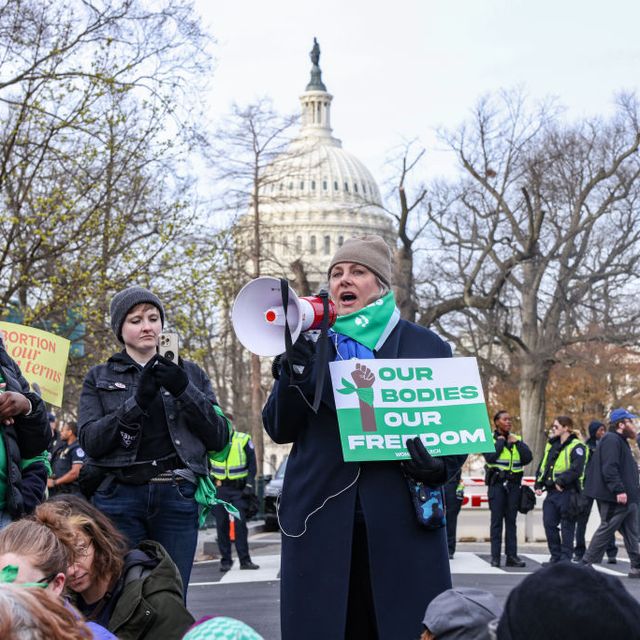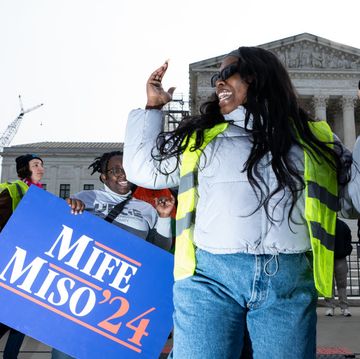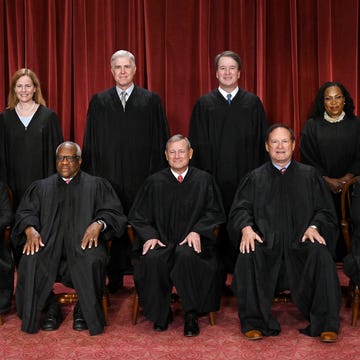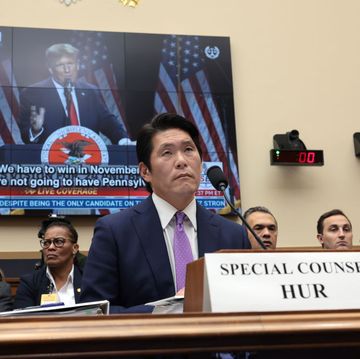‘Whoever shall prophane the Lord’s Day by doing any servill worke should be fined or whipped.’
— Proclamation of the Elders of the Massachusetts Bay Colony, 1648
Like white people, smallpox, and angry Protestantism, blue laws came to America from across the sea. Many, if not most of them, involved keeping holy the Lord’s day, as we can see from the quote above from the various ice sculptures who founded this Commonwealth, god save it. Truth be told, the first blue law was dropped by the Emperor Constantine in the fourth century, which required that all laborers get the Day Of The Sun off. Nobody’s really sure what the etymology of the phrase, “blue laws” is. It first appeared in a New York newspaper in 1755. And, like white people, angry Protestantism, and other ancient imports from the departed British Empire, blue laws have persisted to this day. Courts have determined that, no matter how deep their religious roots may be, there is a secular good to be derived from giving people one day off out of seven. Massachusetts didn’t allow Sunday sales of anything until 1983.
So the blue laws survive. Many of the others stay on the books because it’s too much trouble to repeal them, or because the state’s power to enforce them has been declared to be in violation of the state’s constitution. Let me introduce you to Massachusetts General Laws, Section 132, which is still on the books. It is fairly self-explanatory.
Whoever wilfully kills pigeons upon, or frightens them from, beds which have been made for the purpose of taking them in nets, by any method, within one hundred rods of the same, except on land lawfully occupied by himself, shall be punished by imprisonment for not more than one month or by a fine of not more than twenty dollars, and shall also be liable for the actual damages to the owner or occupant of such beds.
Tom Lehrer, working on the Cambridge side of the river, had a famous song called “Poisoning Pigeons In The Park.” If Section 132 had been enforced, Lehrer might have faced a conspiracy rap.
Elsewhere in the General Laws, making candy with more than one percent alcohol is forbidden. So is dancing on Sunday, unless you’re square dancing, of course. It’s illegal to sing only part of the National Anthem, so don’t start if you can’t sing it all the way through to that verse about slave rebellions. You can’t sell rabbits or ducks that have been dyed a different color, nor can you give beer to hospital patients. By law, you need a mayoral proclamation to sit on the grass on Boston Common. And it’s illegal in Boston to keep a mule on the second story of your building — which is going to complicate the meetings of the state legislature a great deal.
Many of the older blue laws were manifestations of the suspicions of the Puritan fathers that somebody, somewhere, was enjoying their life. That spirit survived in the federal law in the Comstock Laws that were passed in the 1870s. They lay buried in the federal criminal law like mummies in a pyramid — or, more accurately, like land mines — until recently when conservative judges and think-tankers determined that they could be revived in service of the anti-choice agenda. This past week, during the oral arguments in the cases involving mifepristone before the Supreme Court, Justices Samuel Alito and Clarence Thomas both evinced an ominous interest in applying the Comstock Laws to forbid interstate transactions in the medicinal abortion drugs. It’s out there, folks.
Anthony Comstock was a Civil War veteran from Connecticut who took a job after the war as a dry-goods salesman in New York City. He found himself surrounded by all manner of salacious and lubricious shenanigans that mortally offended his rigid Christian morality. He was a lifelong prude, and he was not shy about throwing around his purity light. From Smithsonian:
In 1863, at the height of the Civil War, Comstock joined the Union Army. He was shocked by the vices he observed in his fellow soldiers. When the men received a ration of whiskey, Comstock refused to drink the spirit. Rather than surrendering his ration, he poured it out on the ground in front of the other men.
After the war, Comstock settled in New York City, finding work at a dry goods store—as well as new opportunities to rein in the vices of his colleagues. After he learned about a fellow employee who had purchased erotic literature, Comstock located the bookstore in question and turned the seller in to the police.
Sounds like a swell fella. Making new friends everywhere he went.
In 1873, Comstock went national. Lobbying for national anti-obscenity laws, Comstock brought with him a vast collection of porn that had been seized from various New York bookstores. Somehow, he managed to bring this into a committee room without any of the congressmen lifting bits of it.
As he wrote in his diary, “All were very much excited and declared themselves ready to give me any law I might ask for, if only it was within the bounds of the Constitution.” Within weeks, Congress approved what’s now known as the Comstock Act, which was signed by President Ulysses S. Grant on March 3, 1873. Lawmakers were so taken with Comstock that they went even further, appointing him as a special agent of the United States Post Office Department, an unpaid role that gave him the power to enforce his new anti-obscenity law.
This was the equivalent of handing Carry Nation another ax. Comstock used his newfound powers to their maximum.
Using his newfound postal powers, Comstock made more than 50 arrests in the year following the law’s implementation. He continued to work in his Post Office role for the next four decades, retiring a few months before his death in 1915. Toward the end of his life, he bragged that he had confiscated 150 tons of books, made 4,000 arrests and pushed 15 people to die by suicide.
Lord, what a dog’s breakfast this guy was. No less a wit than George Bernard Shaw said of what he called “Comstockery”:
“Europe likes to hear of such things. It confirms the deep-seated conviction of the Old World that America is a provincial place, a second-rate country-town civilization after all.”
Comstock’s original targets largely involved erotic art and literature. But he soon moved along to another project — namely, restricting the dissemination of sex education and contraceptive material. That got him crossways with Margaret Sanger and other early feminist activists. One of his last acts was throwing Sanger’s husband into the sneezer for 30 days. Then, Anthony Comstock went home and died. After his death, the laws to which he’d given his name were repealed piecemeal and the parts that weren’t repealed no longer were enforced.
Last Tuesday, in the Supreme Court of the United States, the zombie rose from its dusty mausoleum. It was plain that a majority of the justices were not impressed with most of the arguments brought by the anti-choice side, so Alito and Thomas shifted their concentration to the modern application of the Comstock Acts. From the Independent:
On Tuesday, Supreme Court Justice Samuel Alito – who wrote the 2022 decision to overturn Roe v Wade – suggested that the FDA should have “considered” Comstock. Justice Clarence Thomas later suggested that the manufacturer of the mifepristone drug Mifeprex may have “a Comstock problem.” He said it “specifically covers drugs such as yours.” Erin Hawley, senior counsel for Alliance Defending Freedom, the conservative Christian legal group leading the Supreme Court challenge, also argued to the justices that the Comstock Act prohibits abortion drugs by mail.
In 2022, the US Department of Justice clarified that the Comstock Act does not apply to mailing mifepristone or misoprostol, the drugs used for the two-drug protocol for a medication abortion, a procedure that accounts for nearly two-thirds of all abortions in the US. A right-wing special interest group-led proposal for Donald Trump’s potential return to the White House also cites Comstock to block mifepristone access and other abortion care by mail, and to criminally prosecute providers and the people who receive it. Dozens of Republican members of Congress have also written to the Supreme Court to argue that Comstock bans abortion drugs altogether.
One thing we should have learned from these four decades of conservative radicalization is that no fringe idea stays on the fringes for long. There is always some billionaire venture capitalist or Silicon Valley cowboy willing to bankroll a fringe idea’s passage into the political mainstream. Once it’s there, it develops a constituency among the various conservative sublets in various legislatures and, suddenly, we’re arguing issues we thought were settled a century ago. A warmed-over dog’s breakfast doesn’t taste any better.
This article originally appeared in the Last Call With Charles P. Pierce newsletter on March 30, 2024.

Charles P Pierce is the author of four books, most recently Idiot America, and has been a working journalist since 1976. He lives near Boston and has three children.













